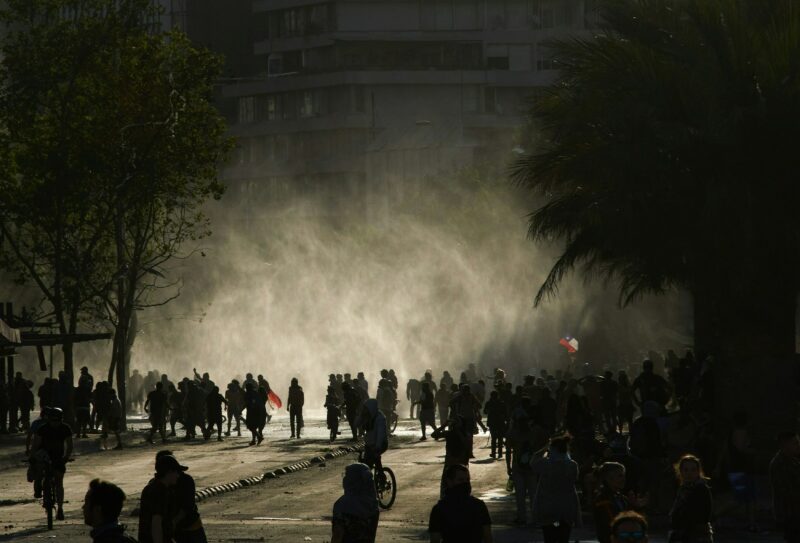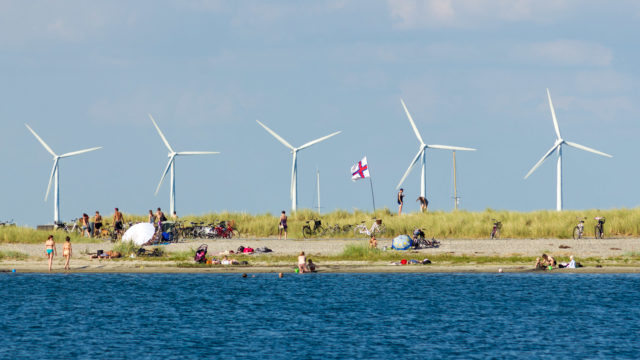2024 - Crisis tribes, elections, and a systemic solidarity response
Are COVID-19, climate change, migration, and war all manifestations of a deeper shared malaise?

I commend a report to you: “A crisis of one’s own: The politics of trauma in Europe’s election year”, written by the European Council on Foreign Relations’ Ivan Krastev and Mark Leonard.
It argues:
- European politics is not simply divided between left and right, and between pro- and anti-European integration attitudes – but between different ‘crisis tribes’ whose members have been traumatised by key events.
- In the last decade, Europe has undergone crises of the economy, security, health, climate, and migration, which have created new political identities – or “tribes” – that run through and between countries.
Like all good insights it articulated feelings that I had held without quite realising where they came from, and illuminated them with clear and compelling evidence. It also made me think.
“ This is important because if we understand these issues as separate, and respond to each without seeing the bigger picture, then we risk creating “solutions” for individual issues that not only fail to address the underlying root cause, but also worsen its other manifestations.”
I wonder if I (and others) have lazily accepted the phrase ‘polycrisis’ as a sort of amalgam of lots of disparate and unique problems, when instead we should have been looking deeper, to understand the shared roots of these crises. The paper made me wonder if COVID, climate change, global economy stagflation (inflation, cost of living, inequality), migration, even the wars in Ukraine, Palestine, Yemen and Sudan are all in fact manifestations of a deeper shared malaise.
This is important because if we understand these issues as separate, and respond to each without seeing the bigger picture, then we risk creating “solutions” for individual issues that not only fail to address the underlying root cause, but also worsen its other manifestations.
Worse, this fractured approach helps to deepen the polarisation of society into different tribes, each of which has a different dominant concern, and creates conflict between these tribes as they jockey for their issues to be addressed first, at the expense of others.
What we are seeing is a political fight for issue and tribe dominance rather than system solution sense.
For example across the five different crisis issues and tribes:
- Health
- Dominant tribe response - Spend money on privatisation of Health services – and not increasing health workforce and without reducing the future likelihood of more pandemics. Or:
- Minority - spend money on improving national health systems, investing in stronger primary care systems adapted to the needs of ageing populations, better working conditions, stronger preventive medicine, reduced waiting lists while restoring nature, reducing pollution and , improving our resilience to future potential pandemics and natural disaster impacts. And do some health reform investment.
- Economy
- Supercharge neo-liberal economic responses, remove social protection, green legislation and red tape, support unsustainable agricultural practices and big corporations, cut taxes for the rich, drill for oil, create debt for more free market investment and to spur consumption growth
- Or go green and circular industrial policies to create new and good jobs and industries and SMEs, with a fair taxation system – but also add more short-term debt…
- Migration
- build walls, fake news and misinformation about migrants, misinformation about foreigners and cut aid to low and middle income states. Or:
- invest in global and national –(southern) green and just economy transitions and new and fair trade that supports inclusive prosperity and wellbeing.
- Security
- Build walls and invest in our armed forces and our expand weapons manufacture and pay more to the waring nations. Blame democracy and move towards authoritarianism Get home grown oil and gas. Or:
- Reinforce multilateralism and local ownership while cooperating more globally, provide an off-ramp for oil states losing power, address the root causes of conflict
- Climate change and environment
- give up on net zero and environmental protection because we can’t afford it. (and don’t want to believe it because I want to consume more, travel more and our pensions are oil and gas returns dependent). Or:
- Or double down on inclusive national and global green, circular and fair economy transitions.
Each of these five crises policy responses from the dominant tribes are likely to worsen the other crises. But are we currently able to convincingly provide a systemic analysis that shows that migration, economic stagnation, extreme climate, diminishing oil states creating war and COVID are all symptoms of a deeper global geo-political and economic governance malaise?

And further, are we able with confidence to articulate the deeper systemic solution is not to trade-off between their symptoms solutions and competing tribes, but to act on the roots, and forge solidarity?
I propose that is the challenge facing us this year and next – solidarity across tribes and issues. To achieve this, I suggest we need four things:
- to listen to other tribes’ genuine concerns and not dismiss them as secondary. And fight misinformation and fake news
- to develop a shared systemic analysis, leading towards convincing shared systems solutions
- to connect with credible partners representatives of the different tribes who can deliver this thinking and act as bridges between solutions
- to craft a narrative that holds the logic of all of this together – and make sure it does not sound naïvely utopian.
So, in 2024 – the GEC will double down on our system solution – ‘the new eco-social contract for a shared global green deal’ with three priorities.
One, we are prioritising building our global network of partners to build bridges and nurture transformative connections – so please get in touch if the above resonates with your work. Two, we are working with our hubs to ensure we have national eco-social contracting prototypes forging national solidarity for local green deals. And finally, three, we are working to progress the collective global green economy architecture that ensures this is an inclusive and fair transition for all nations.
We hope to work with you for this solidarity success in 2024.
- Oliver Greenfield, Green Economy Coalition


